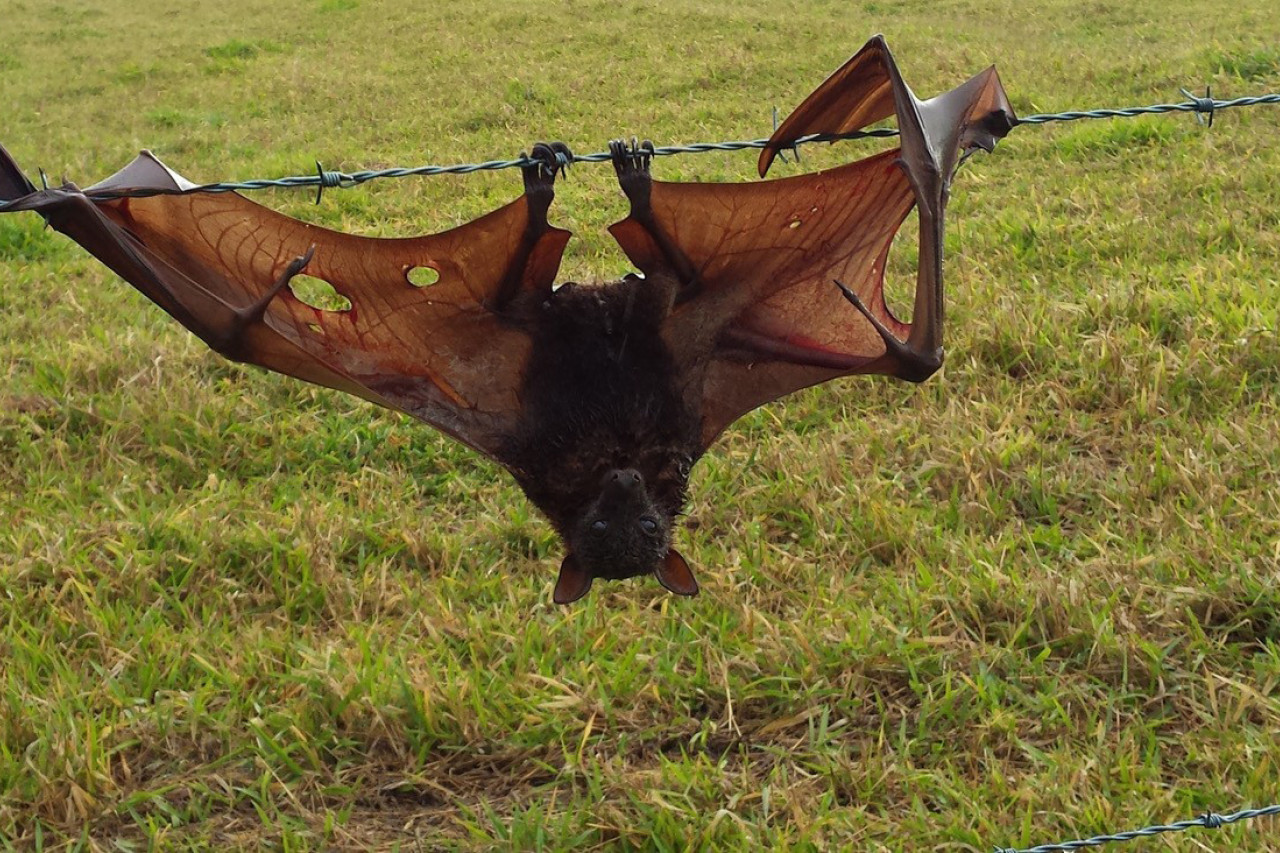General News
24 October, 2025
Red bats dying on fences
LITTLE red flying foxes have been badly injured or died on barbed wire fences across the region in recent windy weather.

Since the beginning of the month, around 200 little red flying foxes have been rescued from properties in the Tumoulin, Gillies Highway, East Palmerston and Mareeba areas and taken to wildlife carers at the Tolga Bat Hospital where more than half of them had to be put down.
“Some of the fences were on ridgelines. The bats were trying to keep low, and out of the wind, and they smashed into fences,’’ Jenny Maclean from Tolga Bat Hospital said.
“Tumoulin near Ravenshoe is a real hotspot.”
The bats are roosting through the day in the Tolga Scrub. Little reds are the smallest flying fox in Far North Queensland. They mainly eat blossom and nectar from native trees and can travel 20-30km a night in search of food.
They are important pollinators of native tree species, usually staying in one roost for four to eight weeks and then moving on.
Seeing so many little reds tangled up in barbed wire has wildlife carers again talking up the importance of plain wire as the top wire in fences. The top wire of fences causes 86% of entrapments.
“Swapping to plain wire saves lives – for bats and other native animals like owls and gliders,’’ Jenny says.
“Tolga Bat Hospital has been running a wildlife-friendly fencing project since 2006. It’s impossible to do nothing when you witness the suffering and loss of life from barbed wire fences in hotspot areas.”
Terrain NRM’s Tony O’Malley says landholders are adopting new solutions, including a more visible twisted plain wire, that minimise risks to wildlife while still being effective for farming.
“We have a new factsheet with a range of options – whether you’re putting in new fences or maintaining existing fences.
“Top strand options include barbless double-strand twisted wire (barbed wire without barbs) or plain wire.”
For more information, visit www.terrain.org.au/wildlife-friendly-fencing and wildlifefriendlyfencing.org


